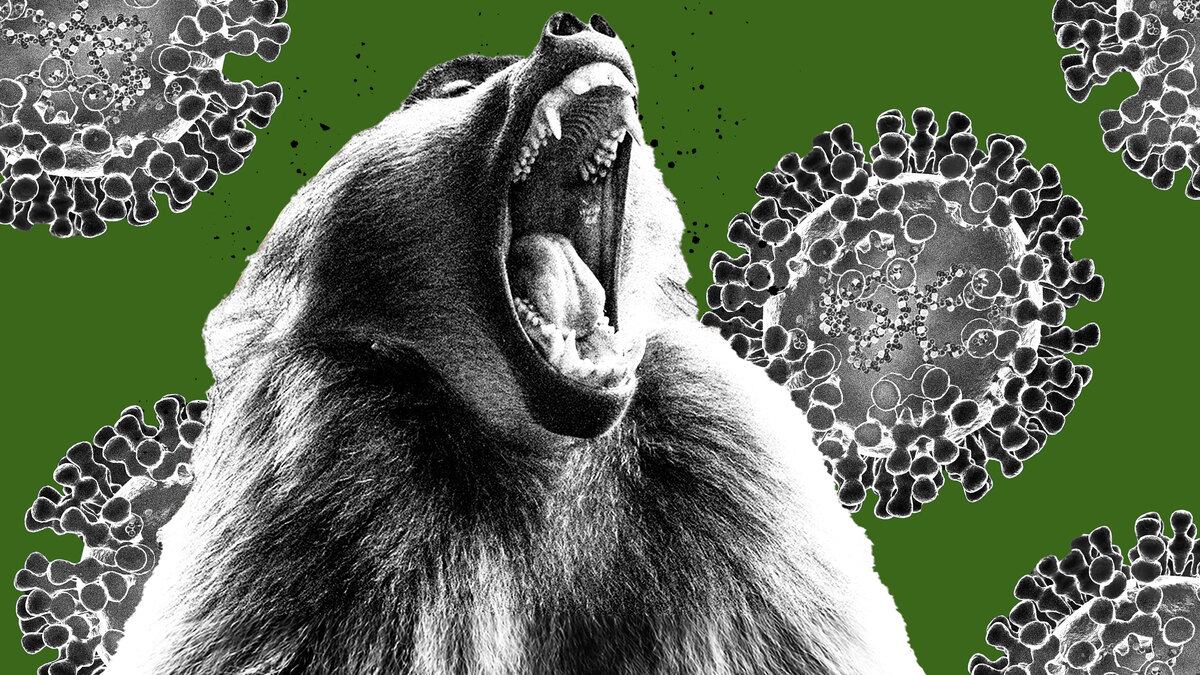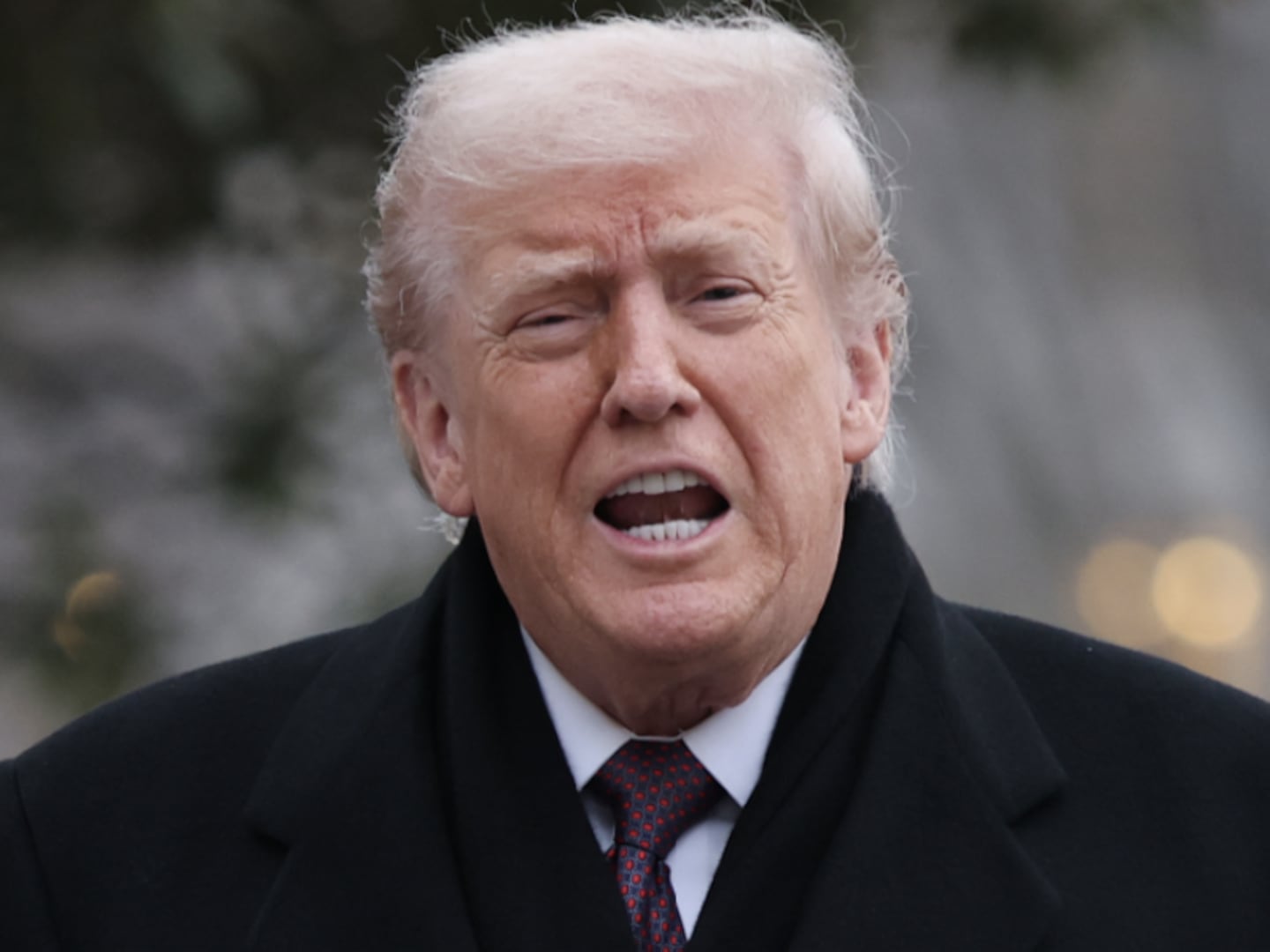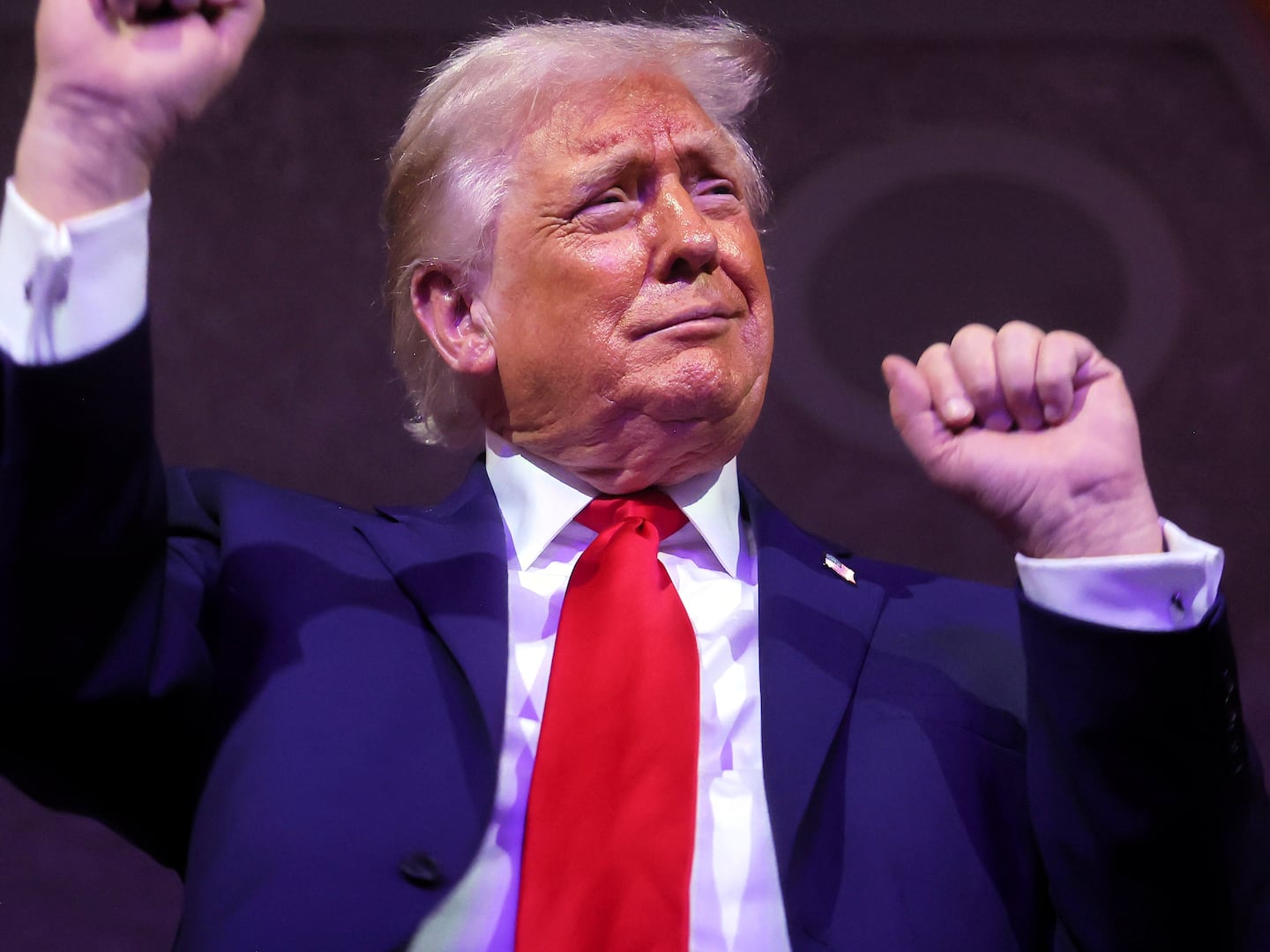Even as the coronavirus pandemic continues to kill hundreds of Americans a day, monkeypox, a viral disease that can cause serious flu-like symptoms and a distinctive and unsightly crop of papules all over the patient’s face and body, has arrived. The first case of monkeypox in the U.S. this year came with a man in Massachusetts who was recently in Canada, and New York City was investigating a possible case on Thursday.
So far, that’s not cause for alarm. While it is endemic to—or traditionally found in—West Africa, this is certainly not the virus’ first visit to American shores, even since the COVID-19 crisis began. And it is by no means a new virus. However, if monkeypox is now spreading fairly easily from person-to-person, as some early evidence suggests may be the case, that would be an unwelcome twist.
“Previous exportations of this disease rarely resulted in any person-to-person transmission,” said Henry Wu, an associate professor in the infectious-disease program at Emory University School of Medicine focused on travel medicine. “I think clearly there is local transmission occurring in these non-endemic areas, at a number we’ve never seen before in previous outbreaks.”
Conventional public health wisdom about monkeypox holds that it spreads via close contact, such as skin-to-skin touching, or the touching of lesions. But the WHO cites a broader array of potential dangers like “body fluids, respiratory droplets, and contaminated materials such as bedding.” Past outbreaks in the U.S., like one in the midwest in 2003, have been linked to pet rodents imported from Africa. Meanwhile in Africa itself, experts frequently tie the disease to the hunting and consumption of “bushmeat,” an umbrella term for wild animals like monkeys, rodents, and bats.
The virus, a relative of smallpox and chickenpox, cropped up last year in Texas and Maryland among people who had recently been to Nigeria. This time, it may have followed a more circuitous route to the United States, possibly including a detour through Europe and elsewhere in North America. Seeing five cases in Portugal and 23 in Spain, as well as an accompanying flare-up in the U.K. and possible cases in Canada, all in a matter of weeks, is, to put it mildly, not the usual pattern, experts said.
“Monkeypox is endemic in West Africa, especially in Nigeria,” and the virus “probably has an animal reservoir, but we do not know which animal,” Eskild Petersen, a professor emeritus of infectious diseases at Aarhus University, Denmark, told The Daily Beast.
“The current outbreak is a surprise,” added Petersen, who chairs the European Society for Clinical Microbiology and Infectious Diseases (ESCMID) Emerging Infections Task Force.
One key difference between this virus and the one that causes COVID-19 is who might have the most to fear from it, experts said. Specifically, younger people and men who have sex with men may be at higher risk in places like the United States, even as COVID-19 has disproportionately killed the elderly.
“Vaccination against smallpox is quite protective, so those like me old enough to have had a smallpox vaccine are well protected,” Carlos Del Rio, professor of medicine in the division of infectious diseases at Emory University School of Medicine, told The Daily Beast. “It is young people who have not received smallpox vaccine who are at risk.”
What’s more, Wu said, when it comes to assessing this new outbreak, “certain assumptions about things that are novel, or effects that we’re less familiar with, may not fit our usual paradigms of infection control.”
“We should assume with any infectious pathogen, the more it spreads among humans, there can always be a possibility of mutations leading to adaptations that facilitate spread,” Wu explained. “Obviously we’re not the usual host. So it’s not adapted, typically, to infect us, but the more it spreads to humans, the more it can adapt.”
In other words, while no evidence exists yet pointing to an unusual amount of spread through respiration, with COVID still killing in large numbers, experts aren’t eager to make any comforting assumptions about how a virus that can be lethal finds new hosts.
“I do not want to be alarmist, but we have to be careful with a virus that is spreading by the respiratory route, like COVID,” Petersen said. “It is a respiratory infection, but previously we did not think that it was very contagious. This perhaps should be reconsidered now.”
The CDC, for its part, does caution Americans in detail about respiratory spread of monkeypox on its website.
Perhaps the most troubling wrinkle: According to a statement from the U.K. Health Security Agency, the disease is appearing “predominantly in gay, bisexual, or men who have sex with men.” The statement notes that while monkeypox is not regarded as a sexually transmitted infection, “it can be passed on by direct contact during sex.”
If monkeypox sees widespread infections in the U.S., either from sex or from respiration, that would be a significant change from the days when people were thought to have picked up the virus from rodent bedding, or yes, by eating wild monkeys. What’s worse, according to Petersen, “it is an infection that is more serious in immunocompromised people like [those who are] HIV-infected.”
But since, unlike COVID, this is not a novel virus, prevention is not a mysterious black box. The smallpox vaccine works on monkeypox, though it’s known to cause rather intense side effects, and always leaves a permanent scar. A second vaccine has previously been licensed for both smallpox and monkeypox, and, according to Bloomberg, the feds made a $119 million move to prep more doses of it this week. Antivirals that can help with smallpox infections can also be used against monkeypox, according to the CDC.
And in an intriguing bit of professional speculation from Petersen, the public-health backstop that may ultimately prevent a widespread monkeypox outbreak for younger people could be the immunity many carry around thanks to the already-administered chickenpox vaccine.
Or previously having had chickenpox.
“The key determinant will probably be if infection or vaccination against chickenpox provide some cross immunity against monkeypox. We do not know that. If not, we have a new virus in a non-immune population: those under 40,” Petersen said.
However, it remains far too early to start panicking about some kind of dual pandemic catastrophe.
“I think the outbreak will be contained,” Del Rio said.







